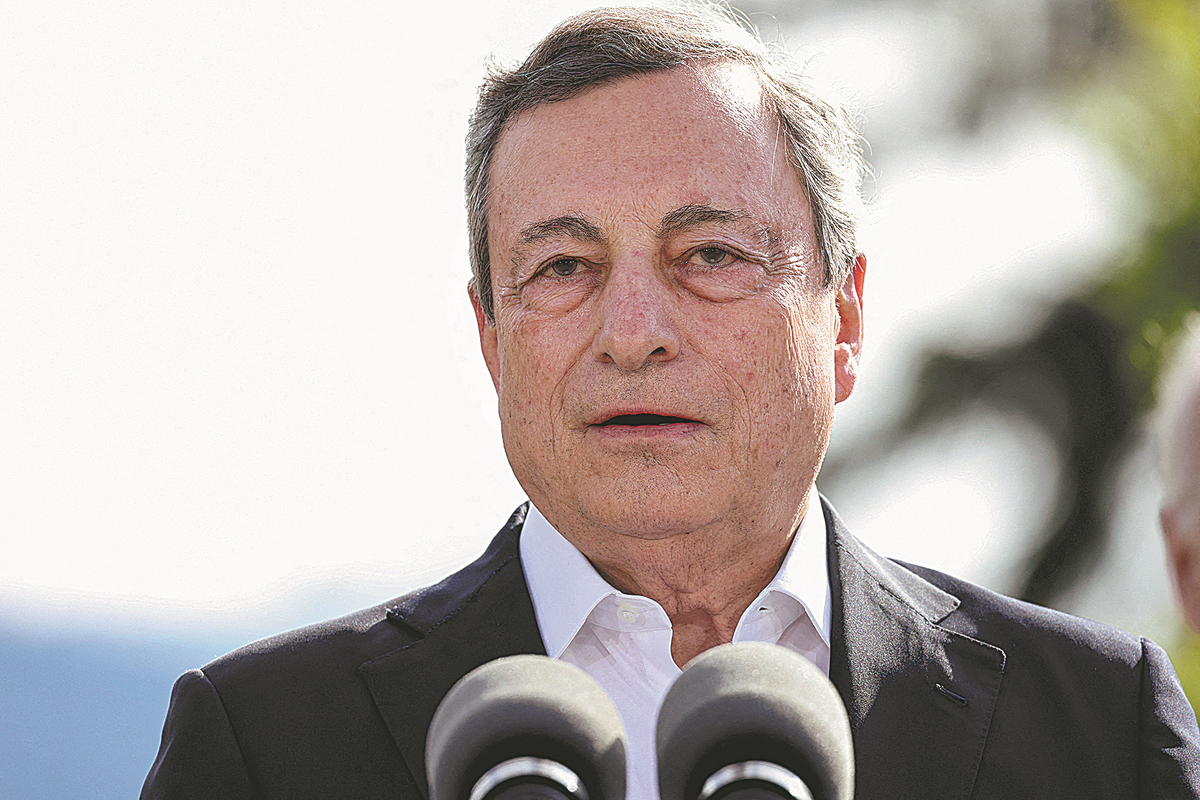Italian president rejects Draghi resignation


Italy plunged into political uncertainty on Thursday after Prime Minister Mario Draghi submitted his resignation over the loss of support for his economic reform package from a main coalition partner, the Five Star Movement. But President Sergio Mattarella has rejected his resignation.
The resignation came after Draghi won a confidence vote in the Senate early on Thursday over the aid package worth about 23 billion euros ($23 billion) to help fight soaring energy prices and high inflation. But the Five Star Movement opposed the package and its senators boycotted the vote.
"Since my inauguration speech to Parliament, I have always said that this government would have continued only if it had a clear perspective of achieving the government program on which the political forces had voted confidence," Draghi told his cabinet ministers on Thursday. "These conditions no longer exist today."
The 74-year-old former European Central Bank president was appointed by Mattarella 17 months ago to form a coalition government to help Italy recover from the COVID-19 pandemic and the ensuing economic crisis.
A statement from Mattarella's office said "the President of the Republic did not accept the resignation of the President of the Council and has invited him to come to Parliament to communicate so that an assessment of the situation can be made".
A vote of confidence in Parliament is expected to be held on Wednesday.
If Draghi steps down, it would set the stage for a snap election as early as September. Italy is scheduled for a national election in early 2023.
Recovery funds
Draghi's government has been pushing for key economic reforms required by the European Union in exchange for post-pandemic recovery funds. Italy is expected to receive some $200 billion from the fund, the largest among the 27 members due to the severe damages it suffered during the pandemic.
Former prime minister Giuseppe Conte, who is now the leader of Five Star, indicated on Wednesday that his party still wanted to support the government, but did not support the economic package in Thursday's vote in the Senate.
"Various political leaders suggest that early elections are seen as a desirable outcome by many because the government's ability to pass additional reforms and make politically difficult choices is close to exhaustion," wrote Lorenzo Codogno, former chief economist at Italy's Ministry of Economy's treasury department, in a tweet on Thursday night.
The League, a right-wing party and also part of the coalition government, has also indicated that it favors early elections.
Italy has had 69 governments since the end of World War II.
Jack Parrock, a veteran TV journalist based in Brussels, said Draghi's resignation "provides a huge headache for the EU, which has enjoyed having a known entity in Rome".
"But it also highlights Italy's political leadership conundrum. Even the strongest bulbs will blow when plugged into an overcharged circuit," he wrote in a tweet.

































